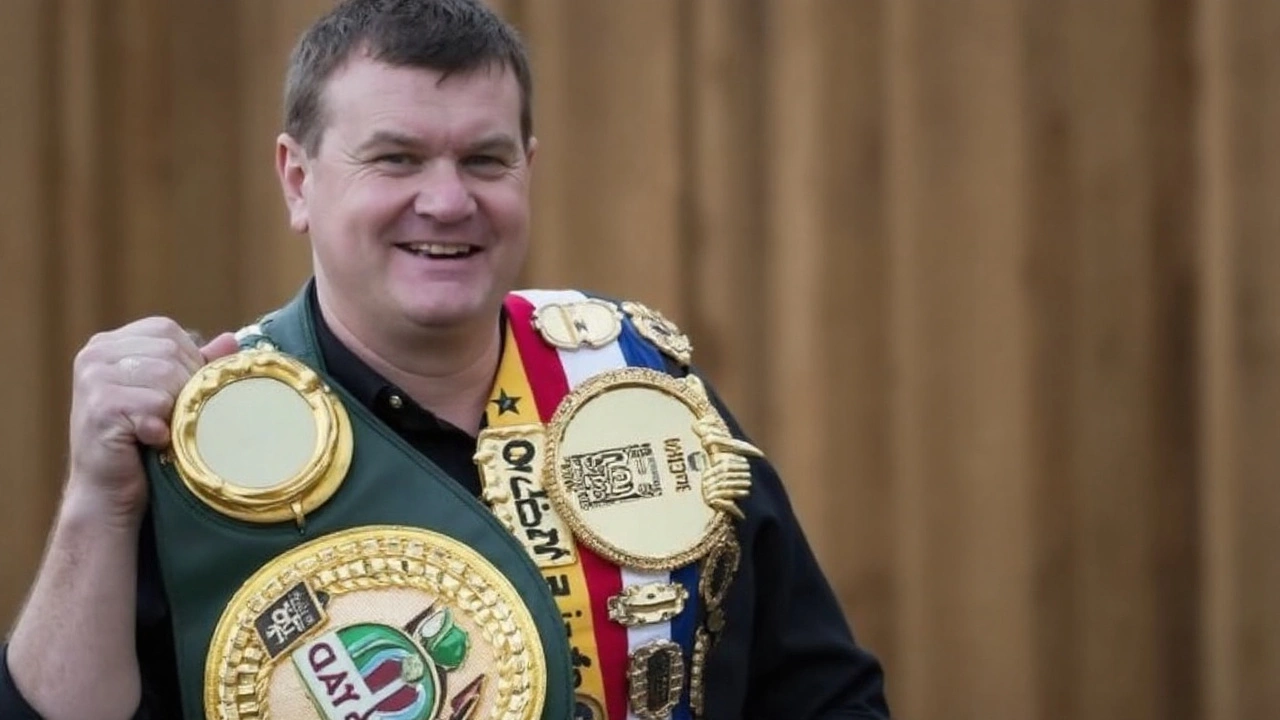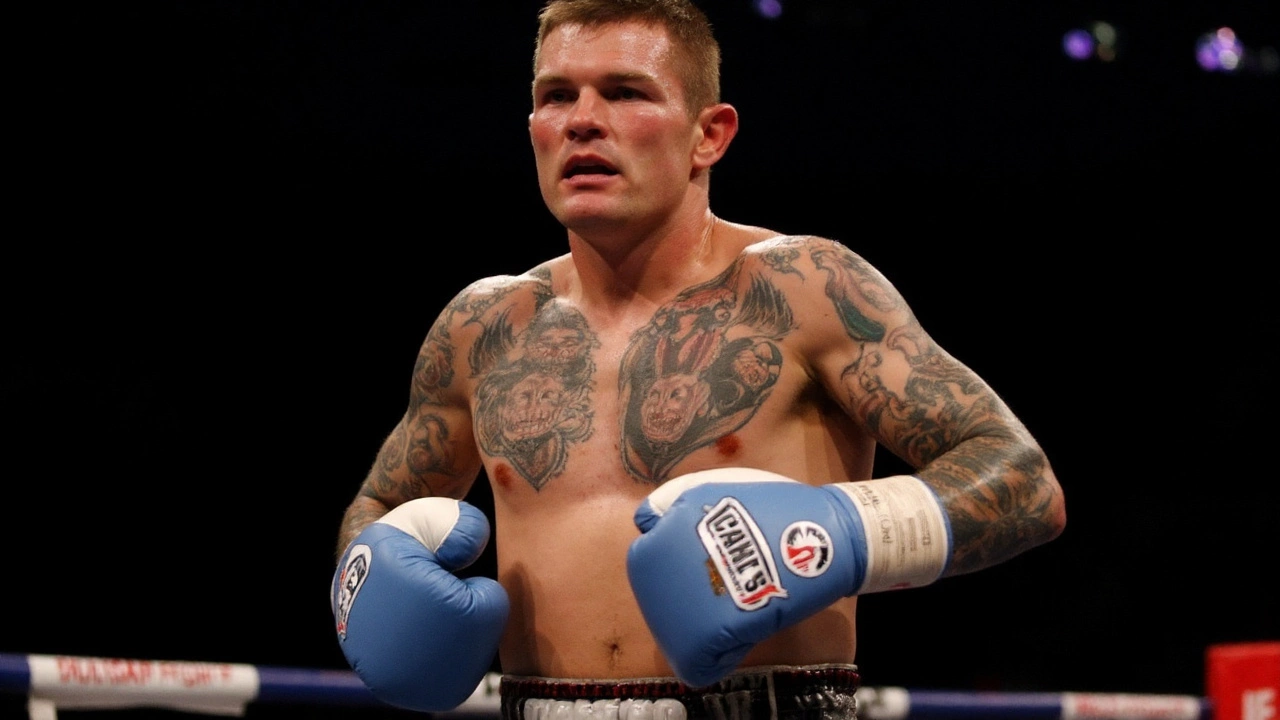Ricky Hatton, one of Britain’s most popular boxers and a former two-weight world champion, has died at the age of 46. Greater Manchester Police said his body was discovered at his home in Hyde on September 14, 2025, after a call from a neighbor. Officers said they are not treating the death as suspicious. A post-mortem and coroner’s inquest are expected in the coming days.
Known to fans as ‘The Hitman’ and ‘The People’s Champion,’ Hatton built a huge following with his pressure-first style, thudding body shots, and big-fight nights that felt more like football away days than boxing events. Flags, songs, and a sea of blue followed him from Manchester to Las Vegas—few British fighters ever moved crowds the way he did.
A sudden loss in Hyde
Hatton’s death comes just weeks after he announced an unlikely return to the ring at 46. On July 6, he confirmed plans for a December 2 bout in Dubai against 46-year-old Eisa Al Dah. He spoke about using the event to showcase boxing in the UAE and hinted he still had the itch to compete. That comeback now won’t happen, and the boxing world is left stunned by how quickly the story turned.
Police have given no further details on cause of death, and family members have not issued a statement at the time of writing. In the UK, unexpected deaths typically go through a formal process led by the coroner, which can take time. Until then, tributes are doing the talking. Promoter Frank Warren and former world champions Tyson Fury, Anthony Joshua, and Manny Pacquiao were among the first high-profile figures to post messages of respect and condolence. Across gyms in Manchester and beyond, fighters and fans shared memories of a man who always had time for a handshake, a photo, and a joke.
Hatton had been open over the years about physical and mental health struggles during retirement—the weight swings, the inertia after the roar of the crowd, the bouts of depression. He also made a point of talking about it publicly, pushing for more honesty around mental health in a sport that often demands silence. That openness made him relatable to people who didn’t know a left hook from a lead foot.

Career, setbacks, and influence
Born in Stockport in 1978 and raised in Hyde, Hatton turned professional in 1997 and quickly became a staple of the Manchester fight scene. He broke through internationally in June 2005 by beating the feared Kostya Tszyu at the MEN Arena, a seismic night that gave him the IBF and The Ring light-welterweight titles and lit the fuse on a frenzy around British boxing. He soon added the WBA belt to unify at 140 pounds.
Hatton briefly moved up to welterweight and won the WBA title there in 2006, becoming a champion in two divisions. The biggest ring nights followed: a 2007 showdown with Floyd Mayweather Jr. in Las Vegas ended in a late stoppage loss but amplified Hatton’s profile. Two years later, he was halted by Manny Pacquiao at light-welterweight in a brutal second round. That one-two of defeats would have ended most careers, yet Hatton still came back in 2012 to face Vyacheslav Senchenko in Manchester after a long layoff. He was stopped to the body in the ninth, a cruel echo of the punch he’d used to end so many of his own fights.
He finished with a professional record widely listed as 45 wins and 3 losses, with more than 30 knockouts. The numbers tell a story of achievement; the atmospheres he created told a bigger one. In 2008, he drew a crowd of more than 50,000 to the City of Manchester Stadium to beat Juan Lazcano, a post-war British attendance record for boxing at the time. For many, that night captured exactly what he meant to his city—local pride, noise you could feel in your chest, and a fighter who made every pound spent on a ticket worth it.
Hatton’s style was old-school: slip inside, rip the body, grind a man down. But there was craft behind the chaos. He feinted well, cut the ring smartly, and could place a left hook to the liver like a dart into a bullseye. Coaches praised his engine and willingness to absorb risk for reward—qualities that made him magnetic to fans and a nightmare to opponents who needed space to think.
When fighting stopped, he didn’t step away. He built Hatton Promotions, ran his own gym, and moved into coaching. He worked with fighters including Nathan Gorman and Tommy Fury, and he was part of Tyson Fury’s corner during the heavyweight’s high-profile return to elite level in 2018. He also supported the early steps of his son Campbell’s pro career, becoming a guide rather than a headliner. If his own ring nights were about noise, his gym days were about patience and detail—foot placement, timing, and the kind of repetition that turns habits into weapons.
In 2022, he laced the gloves again for an exhibition with Marco Antonio Barrera in Manchester. It was a warm, nostalgic evening—smiles, light exchanges, and a reminder that even in his mid-forties, the balance and punch rhythm were still there. That event looked like closure at the time. The Dubai plan suggested he wasn’t done writing his last chapter.
The outpouring since his death highlights how much he meant to British sport beyond the belts. Premier League matchdays often echoed with his name. Oasis tracks blared during his ring walks. He was Manchester through and through, from the blue-and-white colors to the grounded humour. He handled fame without airs, and that mattered to people who saw him in the supermarket as often as they saw him on pay-per-view.
There’s a consistent thread in the messages from fighters: respect for what he did and affection for who he was. He inspired a generation of smaller British arenas to believe they could build world champions from the ground up. He also proved you could sell out a football stadium with a local lad headlining. The commercial ripples of his career are still visible in how British shows are staged and marketed today.
Practical questions follow any sudden death of a figure this big. There will be arrangements to confirm, details for fans who want to pay respects, and decisions about future events that carried his name or involvement. For now, the family’s privacy will be central as formalities unfold.
To those who loved him in and out of the sport, he was more than his record: the rib-crunching body shots, the blue tide of traveling fans, the walkouts that felt like home. British boxing has lost a symbol of its modern era. Manchester has lost one of its own.
